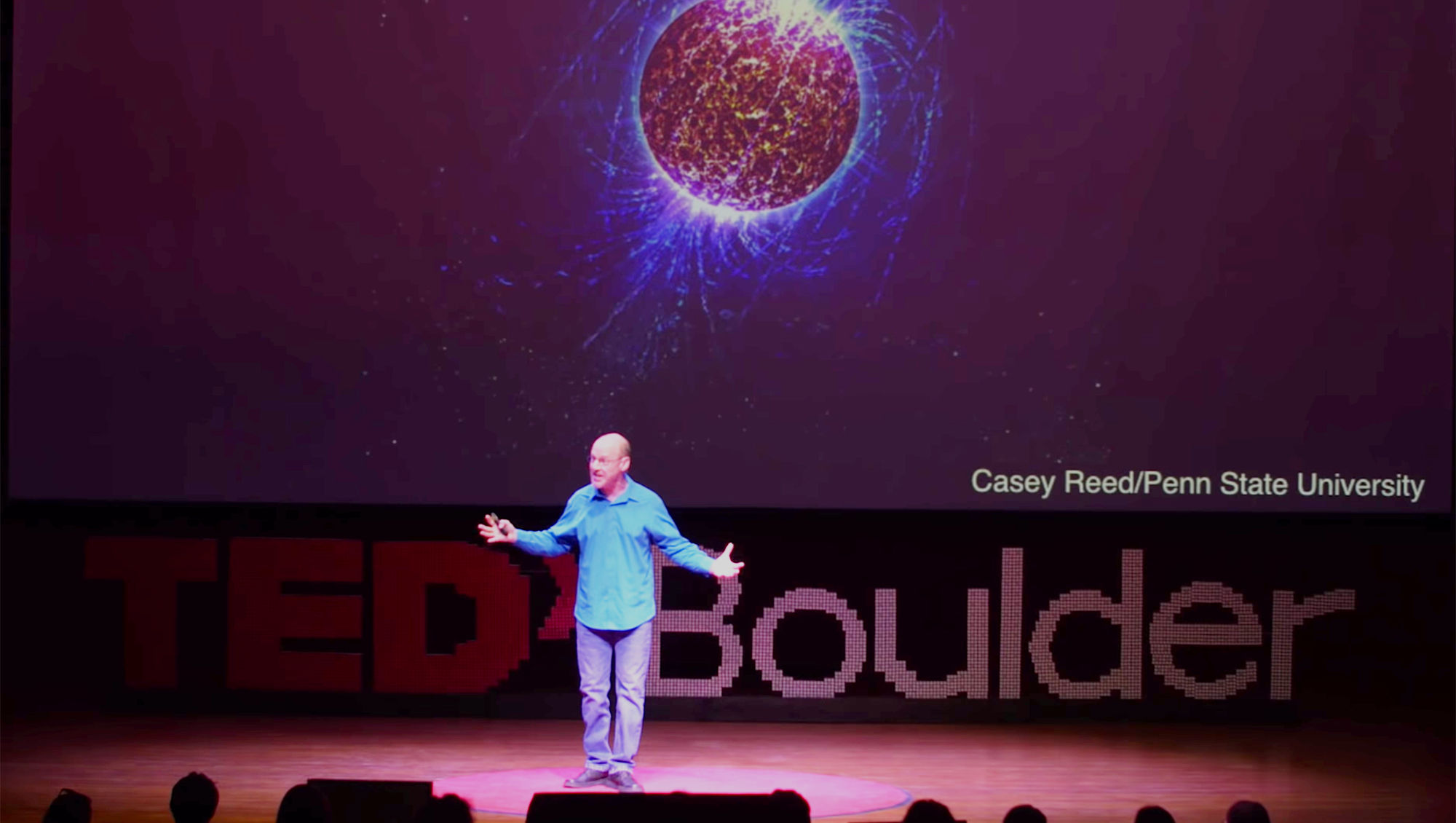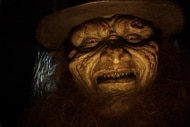Create a free profile to get unlimited access to exclusive videos, sweepstakes, and more!
My TED talk: Science learns by making mistakes… and admitting them

Last year, I gave a TEDxBoulder talk about how science works.
There are a lot of ways to go about tackling that topic, but one that appeals to me greatly is how making mistakes is a natural part of science…. but admitting them is a critical part.
The whole point of having some conjecture to explain a phenomenon is testing it to see where it's right, but also where it's wrong. Then you can zero in on that part and try to understand why it's wrong, and how it can be better. Once you do that, and re-apply the whole scientific method on that part, you are taking the steps toward understanding.
This is a part of science I think a lot of people don't understand; it's not ivory tower scientists tossing out truths to the masses below, it's generally stumbling in the dark over and over again until you start to build a coherent picture of what's going around you.
I also think it's a part of science people need to understand. Not only in the meta-sense that it corrects how people see science and scientists, but also because in these times, with so many attacks on science, people seeing it for what it is is massively important.
And that's why I'm very pleased to announce that my talk is now being featured on the main TED site!
I wrote about this talk when I originally gave it, and also followed up with a more-or-less transcript — it's based on my notes and updated with what I actually said.
Speaking of which…
The topic of this whole talk is how fessing up to mistakes is an important step in learning. So it's time for me to fess up about the talk and some mistakes I made.
I was pretty nervous before giving this talk. That's unusual for me! I'm a professional public speaker, and I've given literally hundreds of talks about science and the attacks thereon <cough cough let me just leave this here cough>. But for some reason this one had me pacing around beforehand.
On top of that, my back was giving me grief that day, so I decided to take some pain medicine to help me. Some medicines like that affect people strongly, but I'm lucky in that this particular drug doesn't make me loopy or sleepy or have any deleterious effects like that.
What I did forget, though, is that it does give me dry mouth. Sometimes desiccatingly so.
Well, that was a big mistake. By the time I walked out on stage and onto the iconic big red dot, my mouth felt like it was full of baking soda. I had a water bottle with me, but it's hard to just stop and take sips in the middle of a big talk (especially when the bottle is sitting on the floor). So on top of just being generally nervous, this was distracting me greatly. I should've just gone with letting my back be sore.
Unfortunately, this meant that during the talk I had to actually stop once or twice to gather my thoughts, which was embarrassing. But what I'm really kicking myself about is that by the time I was approaching the end of the first section, about hypothesizing why the sky is blue, I really felt like I was already way behind on time. I wrestled with myself as I spoke, and then came to the snap decision to omit a paragraph about explaining the actual reason behind it.
That was my second mistake. I should've kept that part in; it's important, and had I run long, oh well. It would've only taken 20 seconds. So that was a bad decision, and one I was able to kinda sorta correct by adding a footnote to the video on the TED page. To be more clear, I'll add what I was supposed to say here:
Oh – As far as why the sky is blue, eventually you'll figure out the sky is blue everywhere, and not just on the coast, and therefore the sky is blue for some other reason. It actually has to do with sunlight hitting nitrogen molecules in the air and getting shot around like balls on a pool table in a strongly wavelength-dependent effect called Rayleigh scattering convolved with the intrinsic solar spectrum and the response of the human eye, but y'know, whatever.
Also, in practice that last bit got a solid laugh, so it was really dumb of me to omit it. Dangit.
So there you go. I also made a couple of other slips, but they were pretty minor, and again are in the TED page footnotes. By the way, there are links there to more information about some of the topics I mentioned, like pulsar planets and exoplanets in general. I urge you to go there and check them out.
Also, since I'm on a self-promoting kick here, this is my second TEDxBoulder talk that made it to the main site; the first was called "How to Defend Earth from Asteroids" and I'm stunned to see it has nearly 2.2 million views! Holy Haleakala! Thanks to everyone for watching that one. It was a lot of fun to give.
I guess all I have left to say is:
Thank you for coming to my TED talk.














